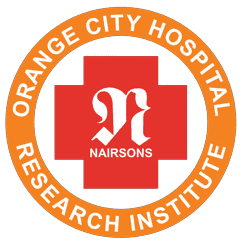What Is Arrhythmia? What Is Ep Study?

Dr. Chetan Rathi
MBBS, MD (Medicine) (Gold Medalist)
MBBS, MD (Medicine)(Gold Medalist)
DNB(Cardiology)
Orange City Hospital & Research Institute
What is Arrhythmia?
Heart rhythm problems (heart arrhythmias) occur when the electrical impulses that coordinate your heartbeats don’t work properly, causing your heart to beat too fast, too slow or irregularly.
Heart arrhythmias may feel like a fluttering or racing heart and may be harmless. However, some heart arrhythmias may cause bothersome — sometimes even life-threatening — signs and symptoms.
Heart arrhythmia treatment can often control or eliminate fast, slow or irregular heartbeats. In addition, because troublesome heart arrhythmias are often made worse — or are even caused — by a weak or damaged heart, you may be able to reduce your arrhythmia risk by adopting a heart-healthy lifestyle.
What’s a normal heartbeat?
Your heart is made up of four chambers — two upper chambers (atria) and two lower chambers (ventricles). Your heart rhythm is normally controlled by a natural pacemaker (sinus node) located in the right atrium. The sinus node produces electrical impulses that normally start each heartbeat. These impulses cause the atria muscles to contract and pump blood into the ventricles.
The electrical impulses then arrive at a cluster of cells called the atrioventricular (AV) node. The AV node slows down the electrical signal before sending it to the ventricles. This slight delay allows the ventricles to fill with blood. When electrical impulses reach the muscles of the ventricles, they contract, causing them to pump blood either to the lungs or to the rest of the body.
In a healthy heart, this process usually goes smoothly, resulting in a normal resting heart rate of 60 to 100 beats a minute.
Types of Arrhythmias
Doctors classify arrhythmias not only by where they originate (atria or ventricles) but also by the speed of heart rate they cause:
- Achycardia – This refers to a fast heartbeat — a resting heart rate greater than 100 beats a minute.
- Bradycardia – This refers to a slow heartbeat — a resting heart rate less than 60 beats a minute.
Not all tachycardias or bradycardias mean you have heart disease. For example, during exercise it’s normal to develop a fast heartbeat as the heart speeds up to provide your tissues with more oxygen-rich blood. During sleep or times of deep relaxation, it’s not unusual for the heartbeat to be slower.
What is EP Study? Why it is done?
An electrophysiology (EP) study is a test used to understand and map the electrical activity within your heart.
An EP study may be recommended in people with heart rhythm problems (arrhythmias) and other heart problems to understand the exact cause and determine which treatment is most likely to be effective. Doctors also use EP studies to predict the risk of sudden cardiac death in certain situations.
An EP study involves placing diagnostic catheters within your heart and running specialized tests to map the electrical currents. EP studies are done in the hospital and carry a very small risk of serious complications.
An EP study is a test to understand the way electrical signals move through your heart to make it beat. An EP study is used in people whose bodies produce ineffective or chaotic electrical signals that cause the heart to beat incorrectly. An EP study can also be used to predict the risk of sudden cardiac death.
Your doctor may recommend an EP study if you:
- Have an abnormal heart rhythm (arrhythmia). If you’ve been diagnosed with an arrhythmia, such as atrial fibrillation, atrial flutter, tachycardia, ventricular tachycardia or supraventricular tachycardia, your doctor may recommend an EP study to better understand how electrical signals move in your heart and how best to treat your condition.
- Are undergoing cardiac ablation. An EP study is done at the beginning of a cardiac ablation procedure for arrhythmia. Cardiac ablation uses heat or cold energy to create scar tissue in the heart to block erratic electrical signals.
- Experience a temporary loss of consciousness (syncope). People who experience syncope may undergo an EP study to understand the cause.
- Have a risk of sudden cardiac death. If you have a heart condition that increases your risk of sudden cardiac death, an EP study may help your doctor better understand risk.
